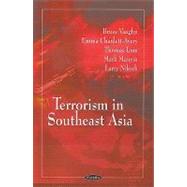
| Preface | |
| Overview | |
| The 9/11 Commission's Recommendations | |
| Background -- The Rise of Islamic Militancy and Terrorism in Southeast Asia | |
| The Rise of Al Qaeda in Southeast Asia | |
| The Jemaah Islamiyah Network | |
| History of Jemaah Islamiyah | |
| Jemaah Islamiyah's Relationship to Al Qaeda | |
| Jemaah Islamiyah's Size and Structure | |
| Major Plots and Attacks | |
| The Trial of Baasyir | |
| Recent Activities | |
| Focus Countries | |
| Indonesia | |
| Background | |
| Shifts in Jakarta's Counter-Terrorism Policy | |
| Recent Developments | |
| The Philippines | |
| Thailand | |
| Role of Congress/Legislation | |
| Indonesia | |
| The Philippines | |
| Thailand | |
| Role of Congress/Legislation | |
| Indonesia | |
| The "Leahy" | |
| Amendment Restriction on Military Aid | |
| The Impact of 9/11 | |
| FY2005 Request for Indonesia, the Philippines, and Thailand | |
| Other CRS Products Dealing with Terrorism in Asia | |
| Index | |
| Table of Contents provided by Publisher. All Rights Reserved. |
The New copy of this book will include any supplemental materials advertised. Please check the title of the book to determine if it should include any access cards, study guides, lab manuals, CDs, etc.
The Used, Rental and eBook copies of this book are not guaranteed to include any supplemental materials. Typically, only the book itself is included. This is true even if the title states it includes any access cards, study guides, lab manuals, CDs, etc.